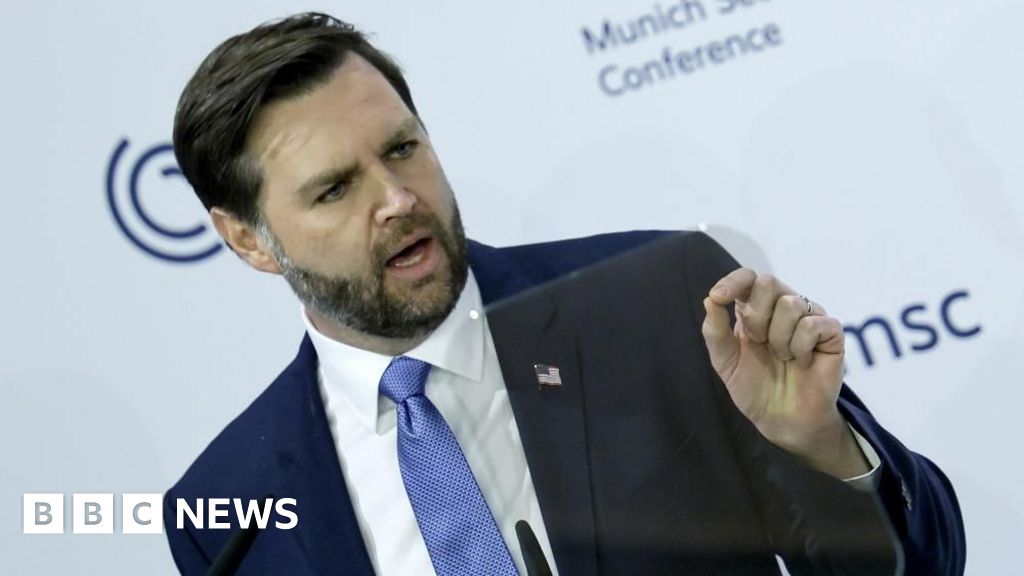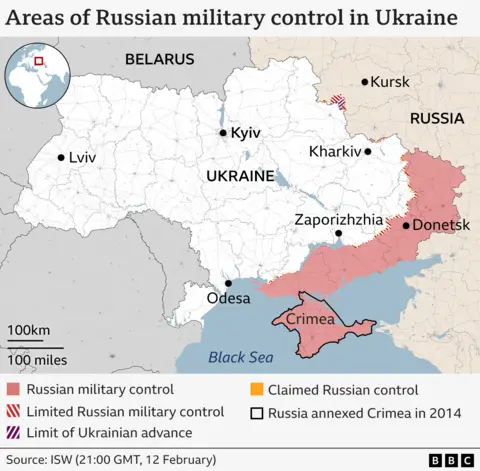
This year’s Munich Security Conference (MSC) was expected to focus on two main issues: finding a way to end the war in Ukraine without conceding to Russia and addressing Europe’s need to increase defense spending.
However, the highest-ranking American official present, US Vice President JD Vance, used his podium time to discuss neither of these topics.
Instead, he stunned delegates on Friday with a fierce critique of Washington’s allies, including Britain, condemning misinformation, disinformation, and the rights to free speech.
The 20-minute speech was an unusual moment, mostly met with silence from those in the hall.
Vance used his speech to accuse European governments of retreating from their values and ignoring public concerns about migration and free speech. His address was met with overwhelmingly negative reactions, widely regarded as a misstep.
The big question was: who was this aimed at?
A US commentator suggested afterward, “That was all for US domestic consumption.”
Despite the backlash, Vance did meet with Ukrainian President Volodymyr Zelensky, who worked hard to maintain a positive tone. Zelensky described their meeting as “good” and emphasized that it marked “our first meeting, not last, I’m sure.” He stressed the need for greater cooperation between Washington and Kyiv to formulate a plan to defeat Putin and end the war.
“We want peace, really, we want peace very much. But we need real security guarantees,” Zelensky said.
US President Donald Trump, however, has argued that while Putin may claim to seek peace, it would be peace on his terms, which likely includes Ukraine’s capitulation and the permanent surrender of territory to Moscow.
Vance’s speech came just days after President Trump, through his Defence Secretary Pete Hegseth, effectively weakened Ukraine’s negotiating position by declaring that restoring Ukraine’s pre-2014 borders, following Russia’s first invasion, was “not realistic.”
The US also dashed Ukraine’s hopes of joining NATO, a key goal for President Zelensky, and ruled out deploying US troops to help secure Ukraine’s borders against future Russian invasions.
Ahead of the Munich conference, Europe was shocked to learn that Trump had held a seemingly cordial 90-minute phone call with Russian President Vladimir Putin, effectively ending the West’s three-year diplomatic freeze with Putin that had been in place since Russia’s 2022 invasion of Ukraine.
Delegates at the Munich Security Conference are set to focus on the war in Ukraine during a high-profile debate on Saturday.
European leaders and their delegations fear that in Donald Trump’s eagerness to secure a peace deal in Ukraine, Vladimir Putin could emerge stronger, victorious, and with plans to expand his territorial ambitions further in Europe.

Key Points:
-
Munich Security Conference Focus: The conference was expected to focus on ending the war in Ukraine without yielding to Russia and addressing Europe’s defense spending needs.
-
Vance’s Speech: US Vice President JD Vance deviated from these topics, delivering a harsh critique of Washington’s allies, particularly Europe, accusing them of retreating from values and mishandling issues like migration and free speech.
-
Reception: His speech was met with silence and negative reactions, being seen as a misstep. Some commentators believed it was aimed at US domestic politics rather than addressing international concerns.
-
Ukraine’s Perspective: Despite the backlash, Vance met with Ukrainian President Zelensky, who emphasized the need for more cooperation between the US and Ukraine to defeat Putin and end the war. Zelensky highlighted the need for “real security guarantees” for peace.
-
Trump’s Position: Trump, through Defense Secretary Pete Hegseth, weakened Ukraine’s negotiating position by declaring that restoring Ukraine’s pre-2014 borders was “not realistic” and ruled out NATO membership for Ukraine and US troops in Ukraine.
-
Trump-Putin Call: Prior to the conference, Europe was shocked by a 90-minute call between Trump and Putin, signaling a shift in the West’s diplomatic stance towards Russia.
-
Concerns for Europe: European leaders fear that Trump’s push for a peace deal could embolden Putin, allowing him to strengthen his position and expand territorial ambitions in Europe.





